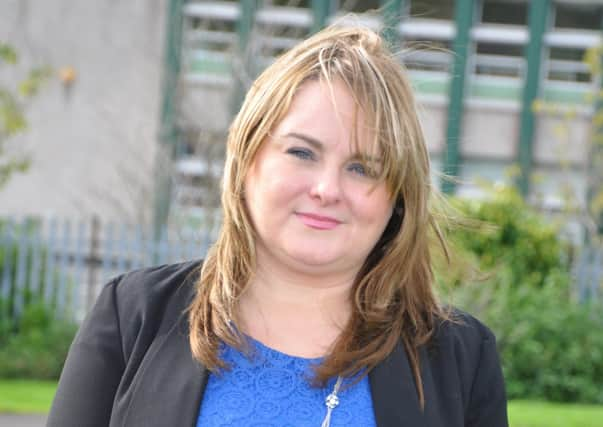Over 330 alcohol related deaths in NI ‘highest on record’ : Derry Colr. urges people to air views in consultation


The party’s local Health spokesperson was speaking following the publication of the alcohol related deaths statistics which shows the highest number of alcohol-related deaths on record for 2019, with the West one of the worst affected areas.
The pre-pandemic figures published by NISRA show that 336 of the 15,758 registered deaths being due to alcohol-specific causes during 2019. This is over a third (34.9%) more than was recorded 10 years ago (249), and 18.3% higher than the 2018 total of 284.
Advertisement
Hide AdAdvertisement
Hide AdAlcohol-specific deaths (that is, deaths resulting from health conditions that are a direct consequence of alcohol misuse), account for approximately 2% of all deaths registered each year.
The rate for males increased from 21.2 per 100,000 males to 22.5; for females, the equivalent rate rose from 9.2 per 100,000 females to 13.1.
In 2019, 210 (62.5%) alcohol-specific deaths were males and 126 (37.5%) were females. This is the highest annual number of female alcohol-specific deaths recorded in Northern Ireland.
Looking at trends over time, the majority of those who died with alcohol-specific underlying causes each year since 2009 have been in the 45-54 and 55-64 age groups, together accounting for between 59.2% and 68.5% of all alcohol-specific deaths each year.
Advertisement
Hide AdAdvertisement
Hide AdIn recent years, the proportion of those who died from alcohol-specific causes that are aged 55-64 has increased; in 2019, this age group accounted for over a third of such deaths (35.4%), while those aged 45-54 accounted for 27.1% of the total.
Over the five years since 2015 there have been notably higher numbers of alcohol-specific deaths in areas of higher deprivation across Northern Ireland, with the death rate in the most deprived areas (30.3 deaths per 100,000 population) being over three times higher than that in the least deprived areas (8.3 deaths per 100,000 population).
Colr. Duffy “The high number of alcohol-related deaths must be a cause of deep concern across all aspects of society.
“It is important to remember that behind each one of these is a family and community grieving about the loss of a life.
Advertisement
Hide AdAdvertisement
Hide Ad“The impact of alcohol continues to affect deprived areas disproportionately with deaths three times higher than least deprived areas.
“The Minister of Health has promised a consultation on minimum unit pricing for alcohol later this year.
“I urge everyone to consider deeply their relationship to alcohol and to have their say on the current Department of Health consultation on substance misuse.”
Meanwhile Health Minister Robin Swann said the harm related to alcohol use is one of the key public health challenges faced by Northern Ireland.
Advertisement
Hide AdAdvertisement
Hide AdMinister Swann said: “These figures serve as a stark reminder of the real harm that alcohol can cause bringing heart breaking consequences for individuals, families and communities right across Northern Ireland.
“Each one of these deaths is preventable and I want to put on record my condolences to all those who have lost loved ones in such tragic circumstances.
“It is vital that as a society we do more to prevent and reduce the harm that alcohol causes.
“My Department’s new Draft Alcohol and Drug Strategy for Northern Ireland is presently out for consultation (www.health-ni.gov.uk/SUS-consultation). I would encourage everyone – but especially those affected by alcohol and drug use – to consider the strategy and respond to it to help us improve what we are doing to reduce alcohol and drug related deaths.”
Advertisement
Hide AdAdvertisement
Hide AdChief Medical Officer Dr Michael McBride added: “Alcohol is not an ordinary product, if we drink too much we can put ourselves and those around us at risk of harm.
“We need to continue to challenge our own and other people’s drinking behaviours at both an individual and a population-wide level.
“We are also mindful of the impact of COVID-19 and reports that people may be drinking more at home during periods of lockdown. Now is a good time to reflect on how much alcohol you are consuming and, if appropriate, to reduce drinking to improve your physical and mental wellbeing.”
Anyone who thinks they might have an issue with alcohol and/or their families can see information about the services available in your area online: services.drugsandalcoholni.info/.